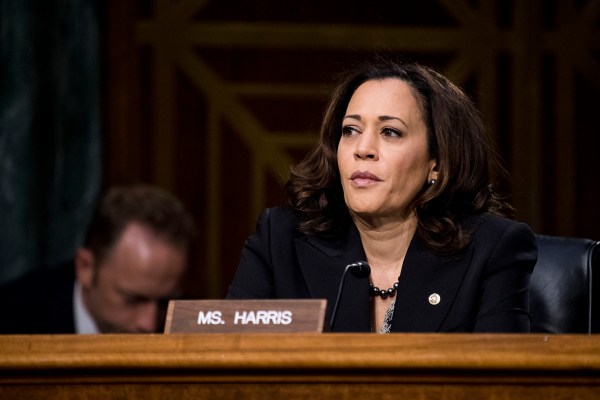Senators Kamala D. Harris (D-CA), Richard Burr (R-NC) and Amy Klobuchar (D-MN), as well as Rep. Jackie Speier introduced a bill today to address revenge porn. The bill, Ending Nonconsenual Online User Graphic Harassment (ENOUGH) Act of 2017, is designed to address the unwanted sharing of private, explicit images.
The ENOUGH Act would specifically ensure the Department of Justice has tools in place to address revenge porn, and establish federal criminal liability for those who share revenge porn and other consensual images. In order to prosecute someone under the ENOUGH Act, there would need to be proof that the person knew the victim expected the image to remain private, and that sharing the image would harm the victim.
“A prosecution would also have to prove that no reasonable person would consider the shared image to touch on a matter of public concern,” the release states.
This bill comes after Rep. Speier introduced a version of the bill, the intimate Privacy Protection Act of 2016, in the 114th Congress. The bill, however, only made it to the House of Representatives.
“Perpetrators of exploitation who seek to humiliate and shame their victims must be held accountable,” Senator Harris said in a press release. “It is long past time for the federal government to take action to give law enforcement the tools they need to crack down on these crimes.”
The bill, which has bi-partisan support, also has support from tech companies like Twitter and Facebook. In the last year, Facebook and Twitter have made some efforts to crack down on revenge porn. In April, Facebook implemented a photo-matching technology to ensure people can re-share images previously reported and tagged as revenge porn. Last month, Twitter updated its policy to state that no one can post or share “intimate photos or videos” of someone without their consent.
Revenge porn is a widespread issue on the internet, with one in 25 people in the U.S. being victims of non-consensual image sharing, according to a 2016 report from the Data & Society Research Institute and the Center for Innovative Public Health Research. Of those affected by the sharing of consensual intimate images, 93 percent of people report “significant emotional distress” and 82 percent report significant difficulties in other aspects of their lives, according to the US Victims of Non-Consensual Intimate Images.
“For victims of nonconsensual pornography, technology today makes it possible to destroy a person’s life with the click of a button or a tap on a cell phone,” Congressperson Speier said in a statement. “The damage caused by these attacks can crush careers, tear apart families, and, in the worst cases, has led to suicide. What makes these acts even more despicable is that many predators have gleefully acknowledged that the vast majority of their victims have no way to fight back. Even in states that have laws on the books, the average person can’t afford to take on these predators in civil courts. Worse are the numerous victims who have mustered the courage and strength to pursue criminal charges, only to learn there is no law that protects them. The ENOUGH Act will fix this gaping hole in our legal system.”
